-
 +15 +2
+15 +2The survival paradox
We are working toward a true account of the universe, and the world we see around us is an accurate picture of reality. Or so most of us believe. At the same time we think we, along with our experience, are a product of evolution. Yet evolution is driven by survival not by truth.
-
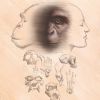 +4 +1
+4 +1Review: Most human origins stories are not compatible with known fossils
In the 150 years since Charles Darwin speculated that humans originated in Africa, the number of species in the human family tree has exploded, but so has the level of dispute concerning early human evolution. A new review looks at the major discoveries in hominin origins since Darwin's works and argues that fossil apes can inform us about essential aspects of ape and human evolution, including the nature of our last common ancestor.
-
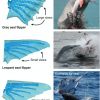 +25 +5
+25 +5Swim like a sea lion, splash like a seal: how evolution engineered nature’s underwater acrobats
New research combines cutting-edge engineering with animal behaviour to explain the origins of efficient swimming in nature’s underwater acrobats: seals and sea lions.
-
 +3 +1
+3 +1Bones Began as Mineral Batteries: Science
The purpose of bones might seem obvious. They hold you up, they connect all your muscles together. But lots of animals get along fine without them. Insects and other inverts don’t have them. Sharks use cartilage. Even most fish don’t have bones quite like ours. And no one’s really sure why our kind of bones came to be.
-
 +4 +1
+4 +1Microbes discovered deep underground remain virtually unchanged since 175 million years ago
Sometimes, not adapting is the best adaptation.
-
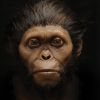 +13 +2
+13 +2New depictions of ancient hominids aim to overcome artistic biases
Artists’ intuition instead of science drive most facial reconstructions of extinct species. Some researchers hope to change that.
-
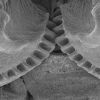 +22 +3
+22 +3Functioning ‘mechanical gears’ seen in nature for the first time
Previously believed to be only man-made, a natural example of a functioning gear mechanism has been discovered in a common insect - showing that evolution developed interlocking cogs long before we did.
-
 +19 +2
+19 +2Researchers take aim at the evolution of traditional technologies
In the last 60,000 years, humans have emerged as an ecologically dominant species and have successfully colonized every terrestrial habitat. Our evolutionary success has been facilitated by a heavy reliance on an ever-advancing technology. Understanding how human technology evolves is crucial to understanding why humans have enjoyed such unprecedented evolutionary success.
-
 +17 +4
+17 +4How early humans' quest for food stoked the flames of evolution
Human evolution and exploration of the world were shaped by a hunger for tasty food – “a quest for deliciousness” – according to two leading academics. Ancient humans who had the ability to smell and desire more complex aromas, and enjoy food and drink with a sour taste, gained evolutionary advantages over their less-discerning rivals, argue the authors of a new book about the part played by flavour in our development.
-
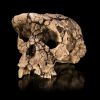 +12 +4
+12 +4Study of partial left femur suggests Sahelanthropus tchadensis was not a hominin and thus was not the earliest known human ancestor
A small team of researchers from France, Italy and the U.S., has found evidence that suggests Sahelanthropus tchadensis was not a hominin, and thus was not the earliest known human ancestor. In their paper published in Journal of Human Evolution, the group describes their study of the fossilized leg bone and what it showed them.
-
 +20 +3
+20 +3Aliens Likely Annihilated Themselves Through Progress, Suggests New Extraterrestrial Research
There are many people who strongly believe that aliens are real and they are living somewhere far from the blue planet, Earth. But a new scientific study suggested that such civilizations destroyed themselves through progress.
-
 +17 +3
+17 +3Monkeys May Have Self-Domesticated Just Like Humans Did, Study Suggests
Monkeys, much like humans, could be engaged in the process of self-domesticating themselves, altering the course of their own evolution and physiology through the way they behave with one another, new research suggests.
-
 +16 +2
+16 +2Human 'microevolution' sees more people born without wisdom teeth and an extra artery
More people are being born without wisdom teeth and an extra artery in their arm as a result of a human "microevolution" in recent years, a study has found. Babies now have shorter faces, smaller jaws and extra bones in their legs and feet, a study in the Journal of Anatomy found. Australian researchers who worked on the paper claim the human race is evolving faster than it has done at any point in the past 250 years.
-
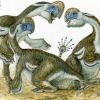 +13 +2
+13 +2Toothless dinosaur with just two fingers discovered
Several complete skeletons of the unusual feathered two-fingered dinosaurs were unearthed in the Gobi Desert.
-
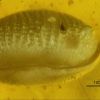 +12 +1
+12 +1100-million-year-old giant sperm found preserved in amber is oldest ever, scientists believe
Fossilised sperm discovered inside a mussel-like crustacean that was trapped in amber 100 million years ago may be the oldest ever found, scientists say. The female ostracod was unearthed by an international team of palaeontologists. They believe it mated shortly before becoming trapped in the resin. Their findings, published in Proceedings of the Royal Society B, provide "an extremely rare opportunity" to learn more about the evolution of the reproductive process, they added.
-
 +18 +4
+18 +4Fossil upends theory of how shark skeletons evolved, say scientists
The partial skull of an armoured fish that swam in the oceans over 400m years ago could turn the evolutionary history of sharks on its head, researchers have said. Bony fish, such as salmon and tuna, as well as almost all terrestrial vertebrates, from birds to humans, have skeletons that end up made of bone. However, the skeletons of sharks are made from a softer material called cartilage – even in adults.
-
 +13 +2
+13 +2Genetics Steps In to Help Tell the Story of Human Origins
It’s not unusual for geochronologist Rainer Grün to bring human bones back with him when he returns home to Australia from excursions in Europe or Asia. Jawbones from extinct hominins in Indonesia, Neanderthal teeth from Israel, and ancient human finger bones unearthed in Saudi Arabia have all at one point spent time in his lab at Australian National University before being returned home.
-
 +2 +1
+2 +1Hurricanes Make Lizards Evolve Bigger Toe Pads
Lizards with bigger, grippier toe pads are more likely to survive after their islands are hit by hurricanes. Big toe pads may help the lizards that have them hang on for dear life and survive the high winds of a hurricane. These sticky-toed survivors will then be the ones to successfully reproduce and pass on their genes, giving rise to a new generation of lizards with a vice-like grip, according to a new paper published this week in the journal Proceedings of the National Academy of Sciences.
-
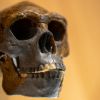 +10 +2
+10 +2Mystery ancestor mated with ancient humans. And its 'nested' DNA was just found.
Today's humans carry the genes of an ancient, unknown ancestor, left there by hominin species intermingling perhaps a million years ago.
-
 +3 +1
+3 +1Take a tusk, drill holes, weave a rope – and change the course of history
Forty thousand years ago, a stone-age toolmaker carved a curious instrument from mammoth tusk. Twenty centimetres long, the ivory strip has four holes drilled in it, each lined with precisely cut spiral incisions.
Submit a link
Start a discussion




















